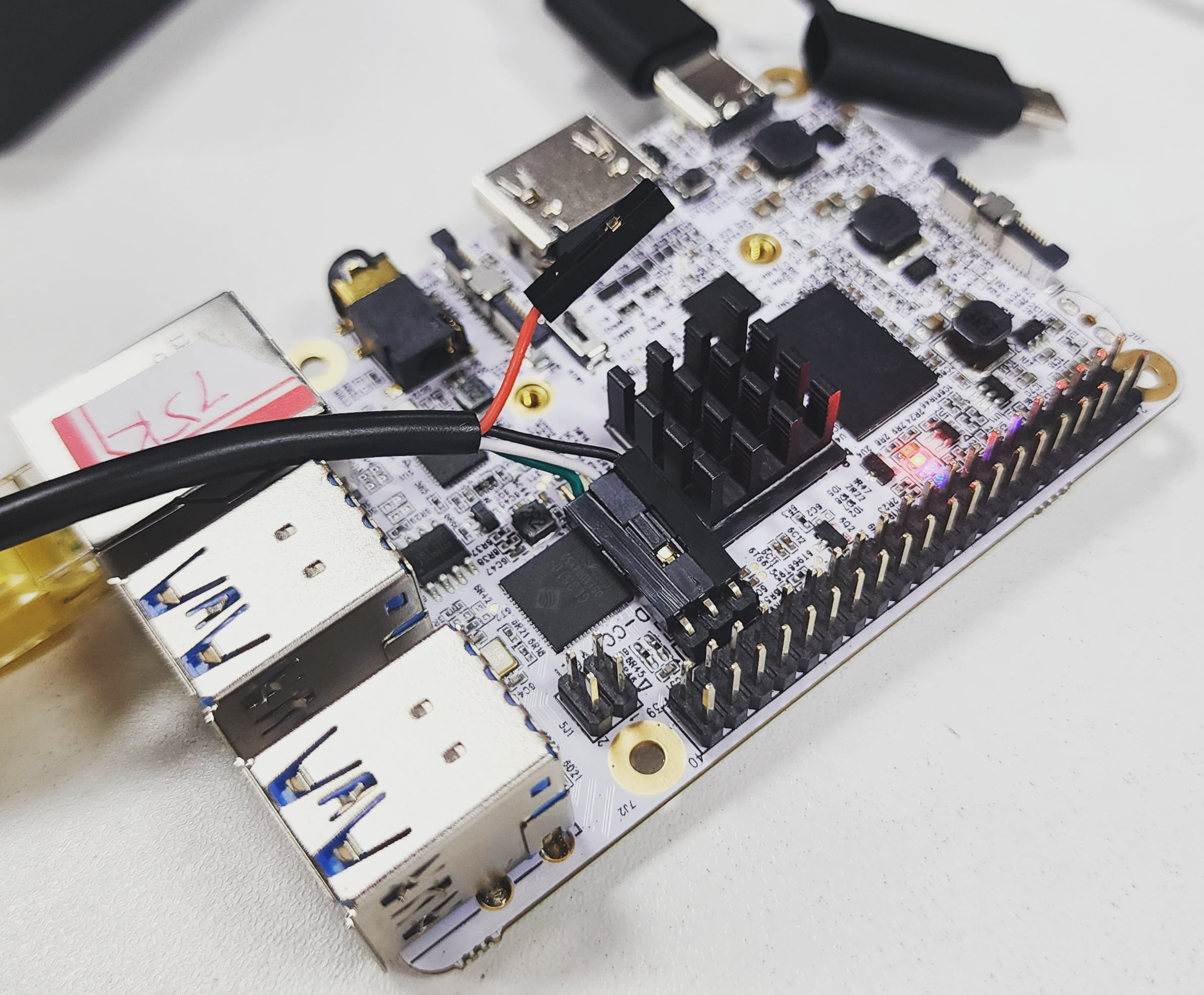Project Cottonwood SBC Promises Double Raspberry Pi 4's Performance
Libre Computer teases a new board designed to beat the highest-end Raspberry Pi.

A new, high-speed competitor to Raspberry Pi could soon be hitting store shelves. Libre Computer just announced on Twitter that its next-generation line of single-board computers, which it calls Project Cottonwood, will be available in Q3 with the flagship "Big Cottonwood" offering speeds that are double those of a Raspberry Pi 4, the fastest Pi on the market today.
Long known as a maker of Raspberry Pi-sized boards, the Shenzhen China-based company posted just a single image of Project Cottonwood, along with a handful of details. These will be at least two SKUs: a "Little Cottonwood" that costs $10 more than the brand's current "Le Potato" board, which goes for $35 on Amazon, and a "Big Cottonwood" that costs twice as much as Le Potato but is double the speed of the Pi 4. Doing the math, that sounds like $45 and $70 for the two boards respectively.
The company was very coy about specs, covering the SoC with a heatsink in the sample photo and responding to user questions on Twitter by just saying that it is some kind of ARMv6 processor. However, we can glean some information just from the picture.
The board looks very similar to the company's existing Le Potato, which is the same shape and size as a Raspberry Pi 3B, but with a white PCB. Like the Pi 3B (and unlike the Pi 4), it has a single, full-size HDMI output rather than dual micro HDMI ports. Like all Pi B models, the product in the picture has a 40-pin GPIO, a CSI camera connector and a DSI display connector.
In an improvement over Le Potato, which tops out at USB 2.0, it appears that there are at least two USB 3.0 ports on the back. We say this simply because of the blue color that shows through the metal in the image. It also looks like the board is using a USB-C power connector instead of the microUSB one on the earlier board. However, the connector is blurry so we can't tell for sure.
While we don't know who makes the Project Cottonwood's SoC, we know that Libre uses processors from AllWinner, RockChip and Amlogic on its current line of SBCs. Amlogic's S905X powers Le Potato, which looks the most Cottonwood and Raspberry Pi 3.
Le Potato can run a variety of operating systems, including Ubuntu, Android, Debian and Raspberry Pi's own Raspbian "Buster" platform. So it seems likely that the same set of OSes would run on Project Cottonwood. However, according to a review I read, Le Potato isn't fully compatible with Raspberry Pi HATs, though with software translation, they may work.
Get Tom's Hardware's best news and in-depth reviews, straight to your inbox.
In its Twitter post, Libre Computer said that it started working on Project Cottonwood all the way back in 2019 and this line, along with another named Sweet Potato, will be its first new products in more than five years. Coincidentally, the Raspberry Pi 4 was released in 2019 and it has remained at the top of Raspberry Pi's product stack since that time.
Raspberry Pi products have been harder to find in the last couple of years thanks to a chip shortage, though availability seems to be improving and CEO Eben Upton recently told Jeff Geerling that inventory will improve a lot later in the year. He also has gone on record saying that there will not be a Raspberry Pi 5 launching in 2023.
If it does beat Raspberry Pi 4 on speed and availability, it's possible that Libre Computer could secure a place for itself with makers. However, the size of the Raspberry Pi ecosystem, which includes HATs, cases and other accessories, makes it tough for anyone else to compete for the SBC throne
Avram Piltch is Managing Editor: Special Projects. When he's not playing with the latest gadgets at work or putting on VR helmets at trade shows, you'll find him rooting his phone, taking apart his PC, or coding plugins. With his technical knowledge and passion for testing, Avram developed many real-world benchmarks, including our laptop battery test.
-
bit_user Double the performance of a Pi 4 puts it squarely in the ballpark of a Rockchip RK3588S. That's my bet. And 2019 is roughly around the time Rockchip first started making noises about it - that one has been in the oven for a really long time.Reply
Lately, Amlogic seems to have dropped out of competition with Rockchip for the high-end of the market. If anyone knows of other possible contenders, do tell. -
webmatthew The latest Orange Pi 5+ is in a league of its own and Armbian is a very usable operating system with hardware acceleration for its Ubuntu-based distro. Cost is very competitive with Pi4; by current SBC performance standards, Pi4 is not at all performance competitive (nor cheap / plentiful).Reply -
bit_user Reply
Thanks. I meant to point that out, as well.cbxbiker61 said:Has to be armv8 not armv6....the original pi was armv6. Armv6 is long dead. -
1_rick Reply
The 3588 is a somewhat better chip and I'd rather see that used, depending on the price difference. (The difference is an extra PCIe lane and some other I/O; the S model is a "cost-optimized", slightly cut down 3588.)bit_user said:Double the performance of a Pi 4 puts it squarely in the ballpark of a Rockchip RK3588S. -
bit_user Reply
If they're using any version of the RK3588, it's definitely the "S". Considering what the Orange Pi 5's cost, it seems hard enough even to make a board with the S that has a respectable amount of RAM for the implied target price of $70.1_rick said:The 3588 is a somewhat better chip and I'd rather see that used, depending on the price difference. (The difference is an extra PCIe lane and some other I/O; the S model is a "cost-optimized", slightly cut down 3588.)
Besides, the S-version mostly sacrifices peripherals rather than performance. If all they're trying to build is a Pi-class board, they don't need to offer the additional PCIe lanes, etc. -
Darkoverlordofdata I bought a pi4. The problem as I see it is that 2 times zero is still zero.Reply -
1_rick Reply
Fair enough. I have a Rock 5B, with the non-S version, and it's nice to have an NVMe drive, but both chips have the same cores, for example.bit_user said:If they're using any version of the RK3588, it's definitely the "S". Considering what the Orange Pi 5's cost, it seems hard enough even to make a board with the S that has a respectable amount of RAM for the implied target price of $70.
Besides, the S-version mostly sacrifices peripherals rather than performance. If all they're trying to build is a Pi-class board, they don't need to offer the additional PCIe lanes, etc.
